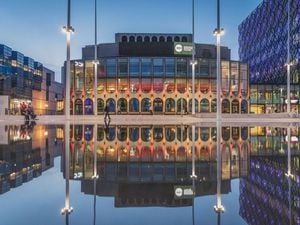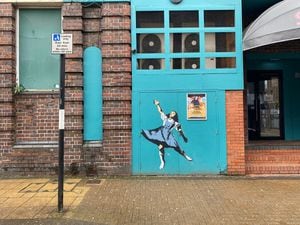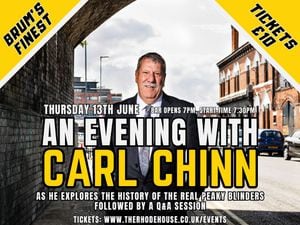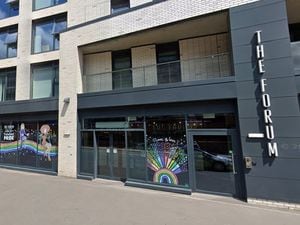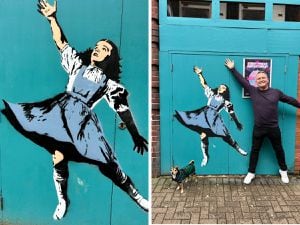Back in the Club! Boy George and Culture Club head to Birmingham
They sold more than 50 million records and enjoyed enormous hits with Do You Really Want to Hurt Me, Karma Chameleon, Church Of The Poison Mind, Victims and It’s A Miracle.

Boy George’s Culture Club defined an era and were at the forefront of the new romantic movement at the start of the 1980s.
But they imploded in a blaze of political infighting, record company struggles and drug abuse. Now, the original band have reformed with Boy George joined by Roy Hay, Mikey Craig and Jon Moss for one of the most exciting tours of the decade.
They’ll hit Birmingham’s Arena tonight on The Life Tour, which also features 80s pop sweetheart Belinda Carlisle and new wave synth pop artist Thompson Twins’ Tom Bailey.
The band has already played a series of shows, headlining arenas across the USA early this year. For Boy George, Culture Club has been a remarkable musical journey.
“I think that obviously initially when I started the band I had an idea and vision of what we were going to be. Once we put together the 4 kind of characters in the band it was clear we ended up creating a sort of noise that was a mix of everything we individually brought to the situation. One of the reasons why we called ourselves Culture Club is because we were such a kind of weird mix of cultural identities and personalities.
“You have Mikey with a Jamaican background, me with a sort of Irish background, Jon Jewish, Roy, your typical kind of Anglos-Saxon Essex boy. We all just brought such individual things to the songs.
“To be honest, when we first started, I wasn’t even sure if I liked what we were doing. (Laughs) Suddenly, over a period of time it became our sound. It’s funny now when we are recording to say, “It sounds very Culture Club.” When we say that, I think we mean it’s very eclectic, it has a kind of World music quality. Obviously my voice is my voice, and it adds a kind of uniqueness to what we do. Yeah, there is definitely a Culture Club sound, I am not sure how easy it is to define. I definitely think kind of World music with I guess a little bit of queerness.”
The band broke through quickly when their second album became a colossal hit. Colour By Numbers was a number one record in the UK, earning three platinum discs, while it also went to number two in the USA, earning four more platinum discs.
Boy George adds: “I think it was the second album. You do the first album, Kissing to Be Clever, it is full of nativity and urgency, then you have your first hit record, then you go on to make our defining album, which was Colour by Numbers. I think Colour by Numbers was made at a time when we began to be successful.
“There was a confidence in that record that perhaps there wasn’t in Kissing to Be Clever. We still had so much to say at that point, it was just before fame took us by the throat and started to control what we were doing. There was also a slight youthful naivety in that record. I think for us it is quite a masterpiece, a perfect Pop record, but I just think we just made a better one. I think the new album is less self-conscious.
“From my point of view as a writer, my songwriting now isn’t so obvious; it’s much more metaphorical, I use a lot of magic realism. I guess a song like Karma Chameleon has a certain amount of magic realism in it. I don’t necessarily only write about my experiences. My songs as a young writer were all about heartbreak, being disappointed, Do You Really Want to Hurt Me, victims, Time (Clock of the Heart), there is a lot of woe is me. That definitely changed because I’m not that person anymore.”
Success became too much for the band, however, and after Boy George and drummer Moss ended their relationship, Boy George turned to drugs. He developed a self-destructive drug addiction, which in four months escalated from marijuana to heroin.
However, years later Boy George says that he’s glad he’s survived though things have changed over many years and the band is a much different proposition in the 2010s than it was in the 1980s. “I think life changes. What’s that saying? ‘Change is the only constant’.” You can fight against change, but it kind of happens whether you like it or not.”

